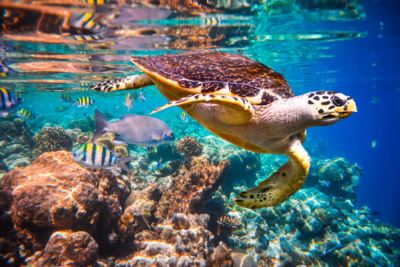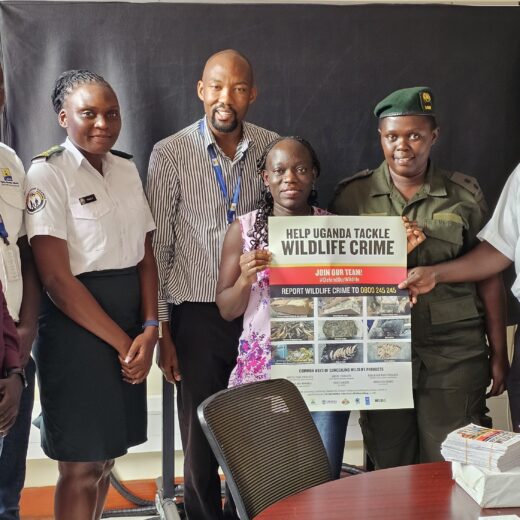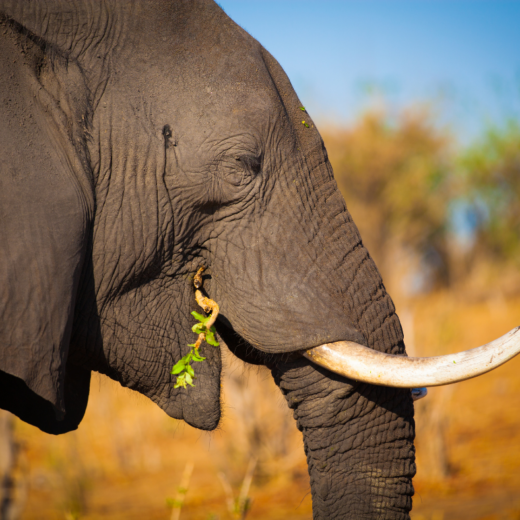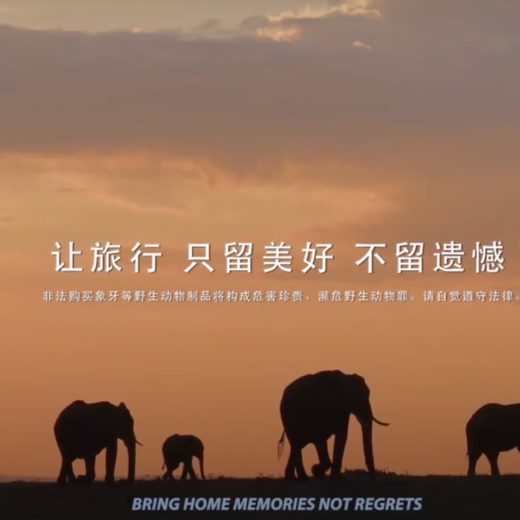
This year’s Endangered Species Day, on May 17, comes on the heels of deeply troubling news from the United Nations. A hard-hitting report into the impact of humans on the environment shows that nearly one million species risk becoming extinct within decades and that the rate of extinction is accelerating.
The Global Assessment study – the first such report since 2005 – should serve as a warning sign. Changes in land and sea use, direct exploitation of organisms, climate change, pollution, and invasive species are driving “unprecedented” biodiversity and ecosystem changes.
Resource extraction and production often occur in one part of the world to satisfy the needs of distant consumers in other regions, says Prof. Eduardo S. Brondízio, who co-chaired the assessment.
Resource extraction, whether it’s ivory from an elephant or crude oil from belowground, shares an economic model that forms a key pillar of WildAid’s demand-reduction strategy. Sea turtles poached for their meat and shells. Elephants illegally killed for their ivory. Sharks de-finned for soup. Each product relies on complex demographic and economic indirect drivers, as well as the social and cultural values that underpin them.
We could easily blame global interconnectivity. However, it is precisely this global interconnection that holds part of the solution to staving off mass extinction and forms the basis of WildAid’s work. The U.N. report reminds us of the importance of cross-border and cross-sector collaboration if we are to slow down the willful exploitation of wildlife (or any resource) in one part of the world to satisfy the demand of consumers elsewhere.
“Interests vested in the status quo will always present a challenge to our conservation work,” said WildAid CEO Peter Knights, “but only by collaborating with our partners – both at the source and on the demand side, can we encourage transformative change.”
Many people said a Chinese ivory ban couldn’t be achieved but China’s 2016 ivory ban was a game changer. While it reduced the price of ivory, it did not completely end elephant poaching. More work is needed to address Asian consumer markets. In Vietnam, WildAid and local NGO CHANGE worked with prominent Buddhist leaders to call on Vietnamese people to stop buying and consuming wildlife products. Changing hearts and minds in Vietnam about ivory use is crucial to ending poaching thousands of miles away. In Thailand, WildAid has partnered with the Zoological Park Association, under the blessing of H.M.King Maha Vajiralongkorn, to educate children and families about the illegal wildlife trade, including elephant poaching.


In a sign of progress, last week, WildAid CEO Peter Knights met with China’s National Forestry Administration (NFGA) and the General Administration of China Customs (GACC) to identify more ways we could work together to raise awareness for the ivory ban.
Discussions focused on how we could continue to educate people about China’s strict ivory ban, particularly in neighboring countries where Chinese tourists sometimes buy their ivory. This year alone, the GACC placed 3,200 posters at 147 border crossings in 42 cities. The PSA featuring Chinese celebrity Huang Xuan garnered 4.7 million views on social media and was featured on 2,941 commercial media billboards. LED screens displayed the ad in 21 cities. More than 10 media outlets covered the campaign while CCTV played the PSA on six channels 18 times a day for two days before the May holiday travel period.
In total, we estimate that our joint ivory campaign reached roughly 32 million people in China.
The U.N. report underscores the importance of collaboration among policymakers and other stakeholders at all levels, including civil society. This Endangered Species Day, we are reminded of the need to work even harder with our partners on both sides of the supply chain in order to conserve biodiversity.


Stay in touch and get the latest WildAid updates.
SIGN UP


